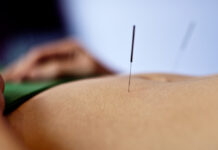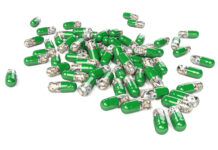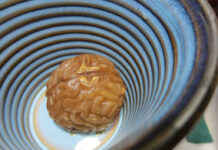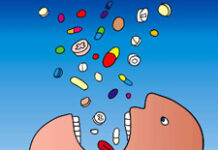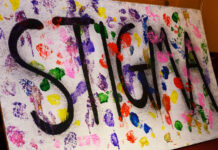Youngest Children in Class More Likely to get ‘ADHD’ Drugs
The researchers suggest that developmental immaturity is mislabelled as a mental disorder and unnecessarily treated with stimulant medication
New Data Supports Acupuncture as a Treatment for Depression
Researchers found acupuncture effective in the treatment of chronic pain and depression
Physicians Underestimate Harms and Overestimate Benefits of Treatment
A new study analyzed over 13,000 doctors and found that physicians had a poor understanding of risks and benefits in every field, including psychopharmaceutical prescription, to CT scans, and cancer screening.
Neuroscience-based Treatment Program Proposed for Adolescent Depression
A study published in Frontiers in Human Neuroscience proposes a new model for the treatment of adolescents diagnosed with major depressive disorder (MDD).
Children with ‘ADHD’ Commonly Prescribed Antipsychotics
Despite little evidence for benefit, and substantial risk of harm, antipsychotics are commonly prescribed to children diagnosed with ADHD
Researcher Acknowledges His Mistakes in Understanding Schizophrenia
Sir Robin Murray, a professor at the Institute of Psychiatry, Psychology, and Neuroscience in London, states that he ignored social factors that contribute to ‘schizophrenia’ for too long. He also reports that he neglected the negative effects antipsychotic medication has on the brain.
Many Patient Advocacy Organizations Are Funded By Industry
New research investigates the financial conflicts of interest (FCOI) of patient advocacy organizations (PAOs) in the United States.
Antidepressant use During Pregnancy may Increase Risk of Birth Defects
Use of antidepressants increased the risk of organ-specific malformations in women with depression
Brain Scans Cannot Differentiate Between Mental Health Conditions
A new study analyzing over 21,000 participants found that differences in activation of brain regions in different psychological “disorders” may have been overestimated, and confirms that there is still no brain scan capable of diagnosing a mental health concern.
BPS Releases Review of Alternatives to Antipsychotics
BPS releases report encouraging behavioral interventions for people with dementia, rather than antipsychotics
Lay Health Worker Intervention Effective at Decreasing Symptoms
Compared with standard care, results of a lay health worker intervention in Zimbabwe suggest that this is effective for reduction of common mental health symptoms
Treating Metabolic Conditions May Resolve Some Depressive Symptoms
New research suggests that treatable metabolic abnormalities underlie some treatment-resistant cases of depression—and treating the metabolic condition has the possibility of dramatically reducing depressive symptoms
Length of Stay in Emergency Departments Longer for Mental Health Emergencies
Statewide study finds patients with mental health emergencies and who are uninsured face longer waits in emergency departments.
Medical Interventions Are Overused Worldwide
Lack of “right care” causes physical, psychological and financial harm to patients
Pets Play Central Role in Management of Mental Health Problems
Individuals with long-term mental health conditions identify pets as valuable supports in their daily lives.
Stigma May Increase Distress in Individuals Who Hear Voices
Review finds that stigma around voice hearing is connected to isolation, secrecy, and poorer functioning.
Study Finds Sexist Attitudes Linked to Poor Mental Health in Men
Adherence to stereotypically sexist masculine beliefs such as self-reliance, power over women, and playboy behavior were linked to poor mental health outcomes
Using Breathing-Based Meditation to Treat Depression
Study reveals data suggesting yogic breathing may be helpful in treating depression for patients who have not respond to antidepressants
Safety Analysis Weighs Harms and Benefits of Antipsychotic Drugs
The researchers find that the drug effects for reducing psychosis are small and that treatment failure and severe side effects are common.
Study Finds Parents Need More Support to Identify PTSD in Children
A new study, published in The Journal of Clinical Psychiatry, investigates the presence of posttraumatic stress symptomatology in children involved in motor vehicle collisions...
“How Exercise Might Keep Depression at Bay”
In an editorial for the New York Times, Gretchen Reynolds discusses three new studies finding that exercise is effective in preventing and treating depression.
Article...
Treating Depression with Exercise and an Internet-Based Intervention
A new study compares exercise, Internet-based cognitive-behavioral therapy (ICBT) and usual care for treating individuals with depression.
Combining Art Therapy and Mindfulness for Refugees
A new article, published in The Arts in Psychotherapy, describes the ways art therapy and mindfulness have benefitted refugees and asylum seekers in Hong Kong.
Who is at Risk for Psychosis?
A report conducted by UK-based researchers indicates that rates of psychosis tend to be higher in ethnic minority groups and in individuals from lower socioeconomic backgrounds.
Curing Schizophrenia via Intensive Psychotherapy
I believe that an Intensive Psychotherapy can lead to healing and, often, a cure of psychotic states. By cure I mean the cessation of delusions and hallucinations, and a gradual titration off of antipsychotic medication, with the cure lasting—even without continuing psychotherapy.


